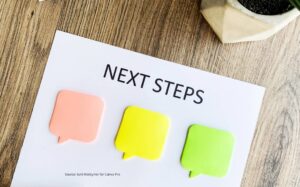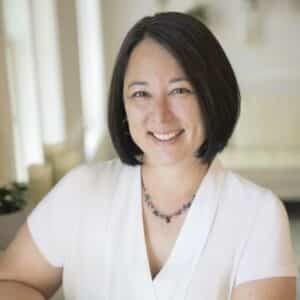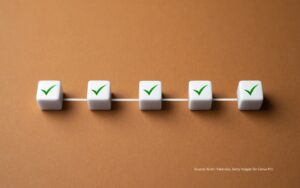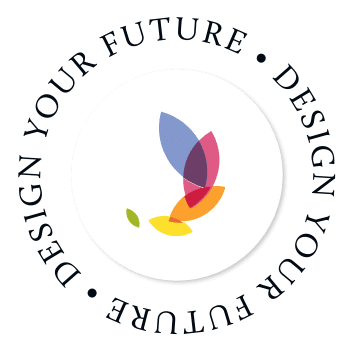If you had asked me ten years ago if I wanted to teach, the answer would have been an unequivocal “No!” Yet that is precisely where I recently found myself, designing and delivering classes on leadership communication to a group of ambitious graduate business students.
As I took my place at the front of the classroom, I wondered if the students in the first two rows could hear my heart pounding. Taking three deep breaths, I reminded myself that this was the beginning of a professional experiment.
What are Professional Experiments?
Professional experiments are a low-risk way of transforming your career. They are part of a process whereby you identify a question about your career that you want to explore. Then, through a series of small inquiries or actions, you gather the information you need to decide what is right for you.
When I have a client with unanswered questions or assumptions about their career, we often take the opportunity to design some experiments. Then, we discuss their discoveries during regular check-ins to see if additional research is necessary or if they are ready to choose a path forward.
Why Professional Experiments are Necessary
In our rapidly changing world, a fundamental paradigm shift has occurred in what constitutes a career. There has also been a change in how we view and talk about our careers.

Traditionally, we treated career progression like a ladder. We expected to move through an organization linearly on a predetermined path – slowly climbing each ladder rung with a clear view of the next steps. The expectation was that you would complete your formal education by your early twenties and spend 20-30 years in an organization until it was time to retire. That social contract worked as long as there was loyalty and trust between the employer and the employee.
Now, the social contract is far more transactional. Instead of following a clear path set forth by an employer, we must continuously learn and adapt to rapidly shifting employment systems to remain relevant. Most of us stay in the workforce longer and change employers multiple times.
That means career changes are no longer optional but necessary. There are many jobs today that didn’t exist 20 years ago. So, to stay current, excited about our work, and gainfully employed, we must ask questions, run small experiments, and reinvent ourselves regularly.
Addressing Your Fears Through Professional Experiments
When working with clients considering a career change, they often ask questions reflecting fear or apprehension that they might fail or make the wrong choice.
But the great thing about professional experiments is that they don’t force you to choose immediately. Instead, you use this process to gather information. That empowers you to check in with yourself to see if what you are doing aligns with what you envisioned so that, ultimately, you can determine if this is where you want to go. Running experiments allows you to explore:
- Who – The people you would be working with.
- What – The reality of your day-to-day work life.
- Why – Whether such a role would serve your professional purpose.
In doing so, you gain confidence about any decision you eventually make, even if you decide you don’t want to change at all and recommit to your current role instead.
How to Design a Professional Experiment
Are you ready to design a professional experiment of your own? Here are some questions you can use as a simple framework.

1. What is one question or goal that you have around your career?
Once you answer this question, ask yourself why it is essential to find clarity around this question or goal. The answers may surprise you.
For example, my question about teaching came down to, “Can I do it?” Having spent a lot of time in university classrooms as a student, I had romanticized what being a professor would be like and wondered whether I would be “good enough” to assume that role. However, after some reflection and discussions with people who taught, I realized there was only one way to find out.
2. Who can help support me through this experiment?
Other people can play a role in your process. They can be brainstorming partners, cheerleaders, mentors, and accountability coaches. Different people bring different strengths to your experiment, so it is vital to form a support and success team to help you along the way.
3. What are some ways to experiment?
Experiments don’t need to be big, expensive, or risky. Indeed, many of the most significant breakthroughs among my clients come through quick exploratory conversations with someone in a profession they are curious about.
4. How will I know?
Create some clarity around how you will know when you have met your goal or found an answer. For some, it’s about gathering a certain amount of information, while others describe a sense of confidence that sets in.
Set some parameters to check in with yourself and your team occasionally. Experiments can also be an iterative process where you gather knowledge and decide what to do next to answer any new questions that surface.
As you run the experiment, keep a couple of things in mind. First, as you start, you may have more questions than answers. That is entirely normal. If it helps, jot down your findings in a document to organize your thoughts. Also, I’ve found that most of us are eager to find an answer immediately. Resist this feeling and let the whole process play out, even if it takes a while.
Final Thoughts
After two terms of running my professional experiment, here is what I discovered:
- There is not necessarily a “right” time, but there might be a stage in your life when everything feels right.
Looking back on where I was professionally ten years ago, I was both unprepared (and utterly terrified) to be in the front of a classroom. Reflecting on that, I realized that the experience and insights I gained from facilitating, coaching leaders, designing programs for organizations, and my doctoral studies gave me the skills and confidence to try this out. - There is no such thing as a “dream” job.
All work has its highs and lows. Fortunately, this role had many more highs than lows. - Other people are critical for positive change.
We often assume that an experiment is a solitary process. But when I think about the innovation that the world has witnessed over time, I realize that it’s not one person but teams of people that drive progress. I am grateful for my team of supporters.
What is holding you back from your exceptional career? Design your professional experiment today, and explore our resources for additional help.





